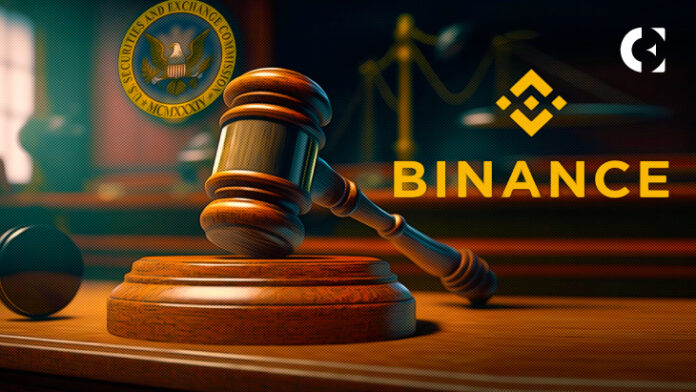- Judge granted Circle an amicus curiae status in Binance vs. SEC legal dispute.
- Circle can offer its perspective on the case without bias.
- Permission is required from the court for Circle to participate in oral argument.
Circle, the issuer of the USD Coin stablecoin, has been granted by the court as the amicus curiae in the ongoing legal dispute between the world’s largest exchange, Binance, and the U.S. Securities and Exchange Commission (SEC).
Just a day before the crucial hearing in the SEC vs. Binance lawsuit, United States District Judge Amy Jackson cleared an amicus brief filed by Circle. This development allows Circle to offer its perspective on the case without displaying bias toward either Binance or its CEO, Changpeng Zhao. However, Circle can only participate in the oral argument with explicit permission from the court.
Circle filed an amicus curiae or friend of the court brief on September 29 in favor of Binance, arguing that stablecoins like BUSD and USDC should not be classified as securities. A portion of their filing stated, “Payment stablecoins, on their own, do not have the essential features of an investment contract.”
The USDC issuer contended that purchasers of the US dollar-pegged tokens do not expect to profit from their investments. They further argued that financial trading regulations should not be extended to stablecoins whose value is tied to other assets.
Dating back to June this year, the SEC charged Binance, Binance.US, and CEO Zhao, for the unregistered offer and sale of securities, such as its native token BNB and its own stablecoin BUSD, among other allegations.
The SEC alleged that Binance marketed BUSD as an investment contract after meeting the conditions of the Howey test, promising investors the opportunity to profit from the BUSD ecosystem. “Since its inception, BUSD has been offered and sold as an investment contract and, therefore, as a security,” the SEC filing stated.
Binance and Zhao subsequently requested that the court dismiss the SEC’s lawsuit against them, contending that the SEC is enforcing laws retroactively and overstepping its authority. Similarly, competitors like Coinbase, are arguing that cryptocurrencies should not be subject to the stringent existing financial regulations in the United States
Disclaimer: The information presented in this article is for informational and educational purposes only. The article does not constitute financial advice or advice of any kind. Coin Edition is not responsible for any losses incurred as a result of the utilization of content, products, or services mentioned. Readers are advised to exercise caution before taking any action related to the company.










